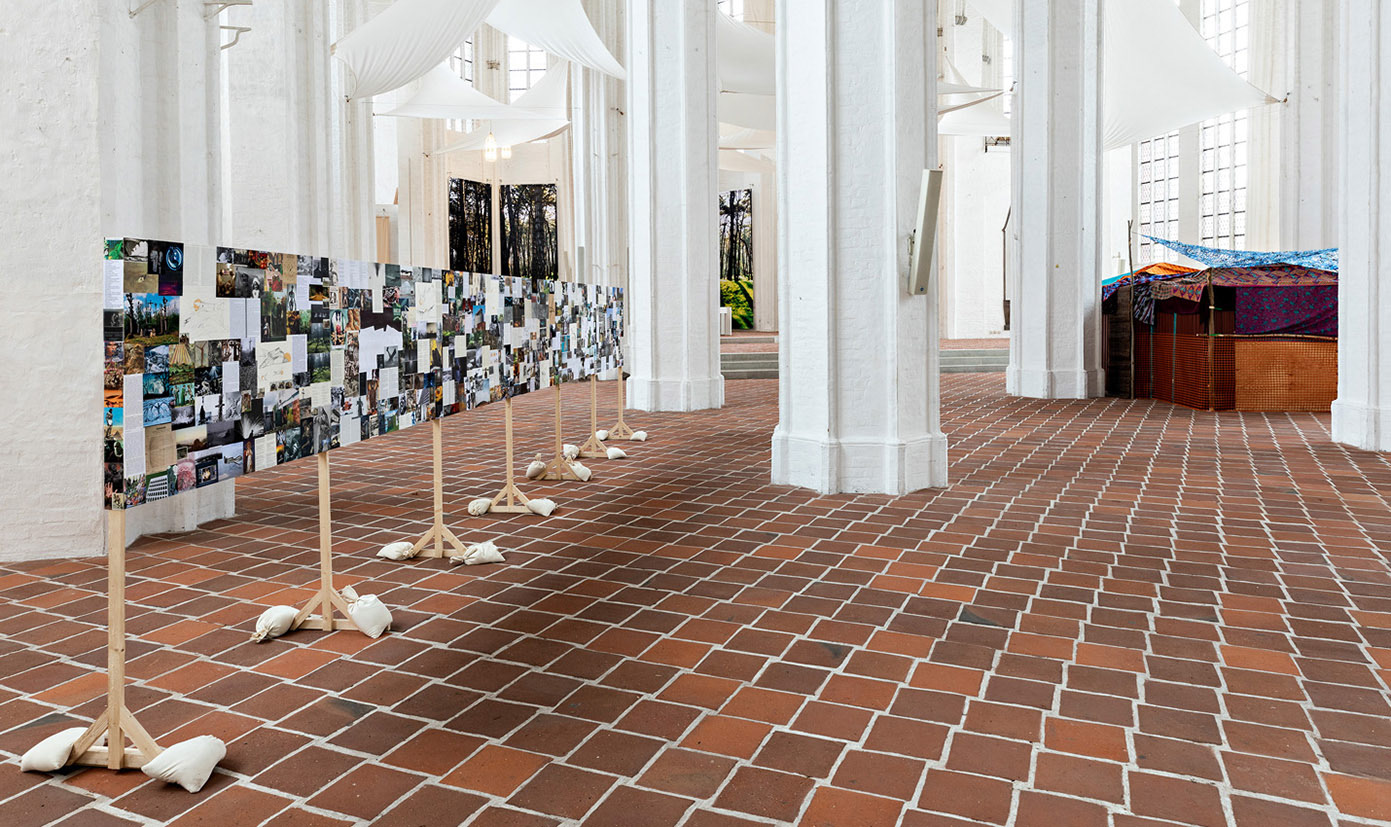
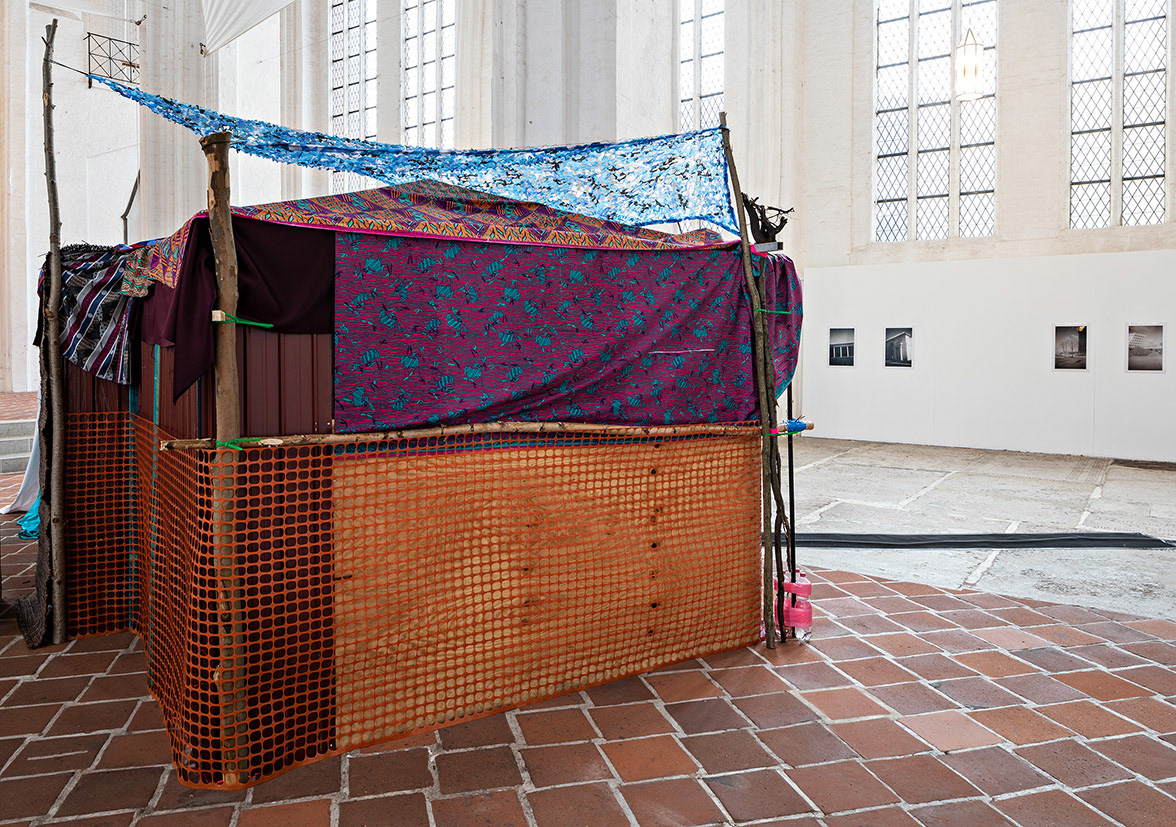
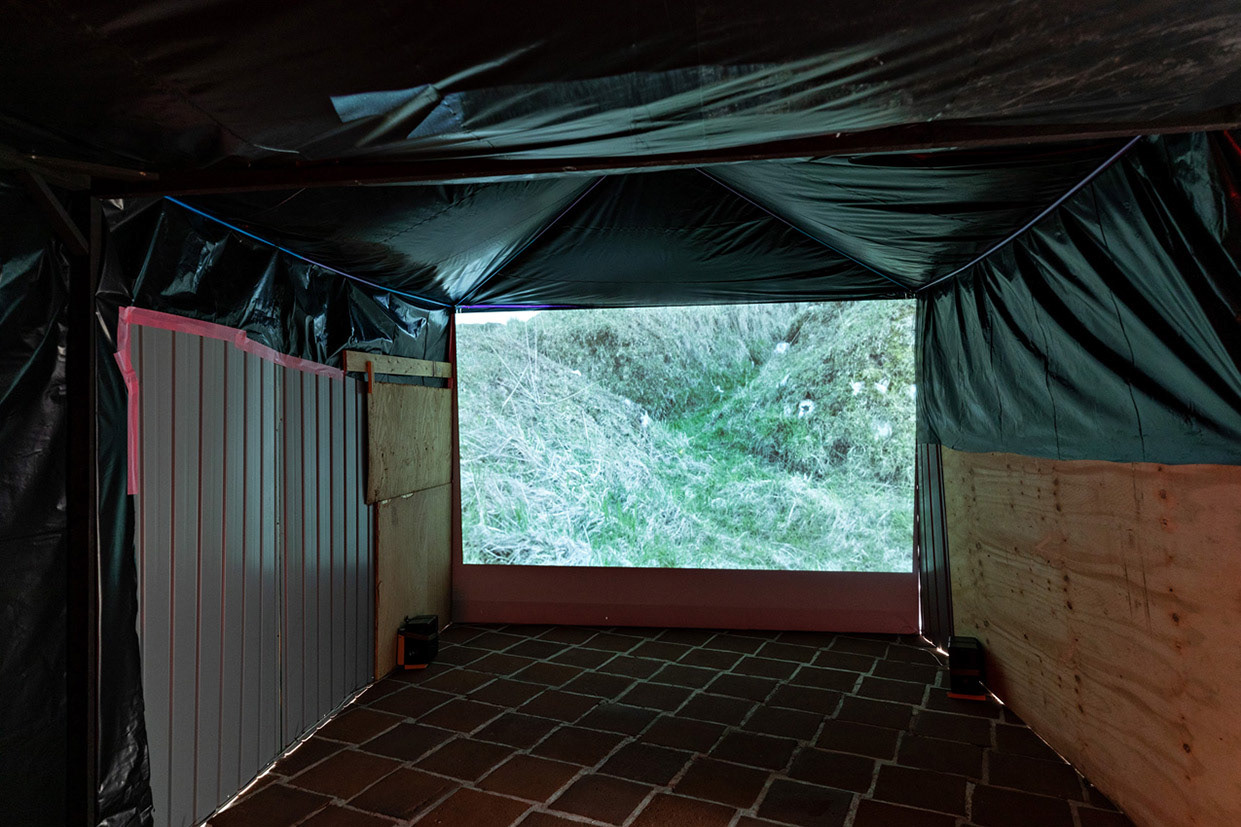
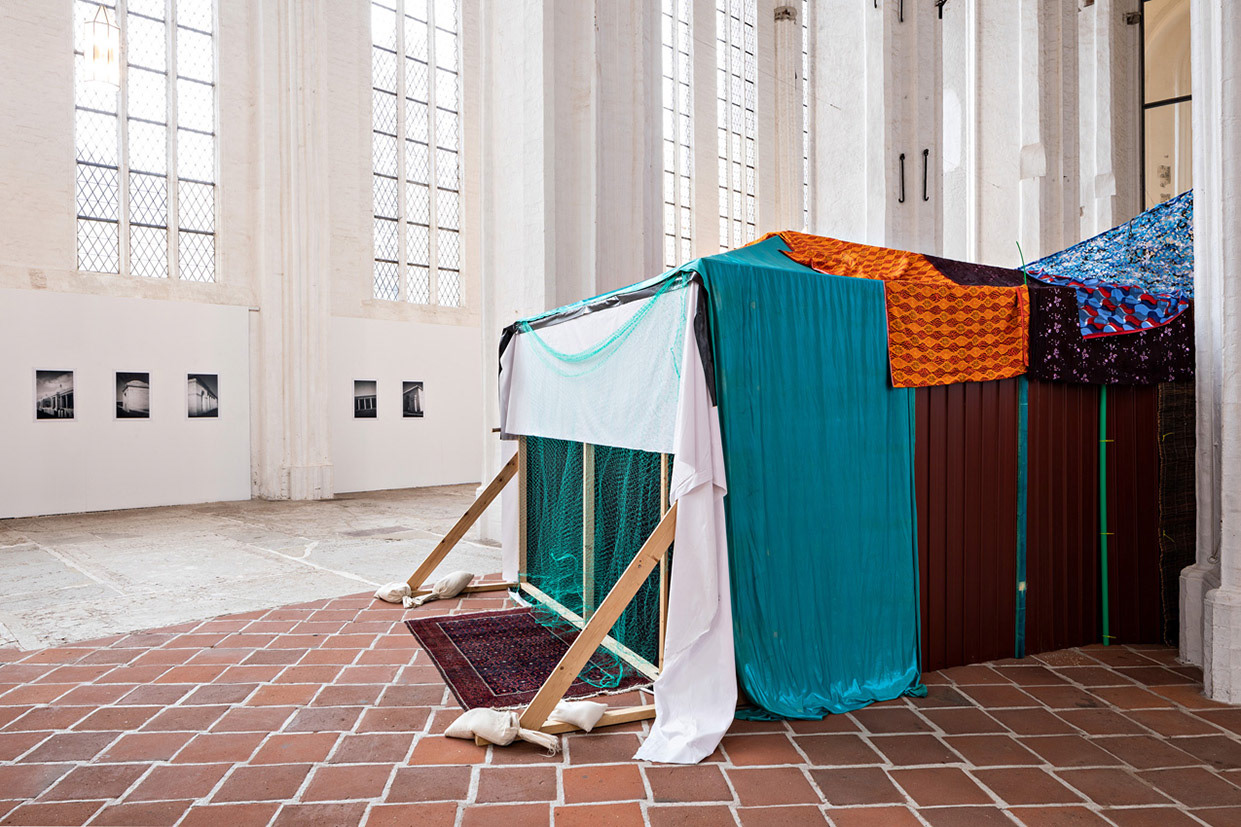
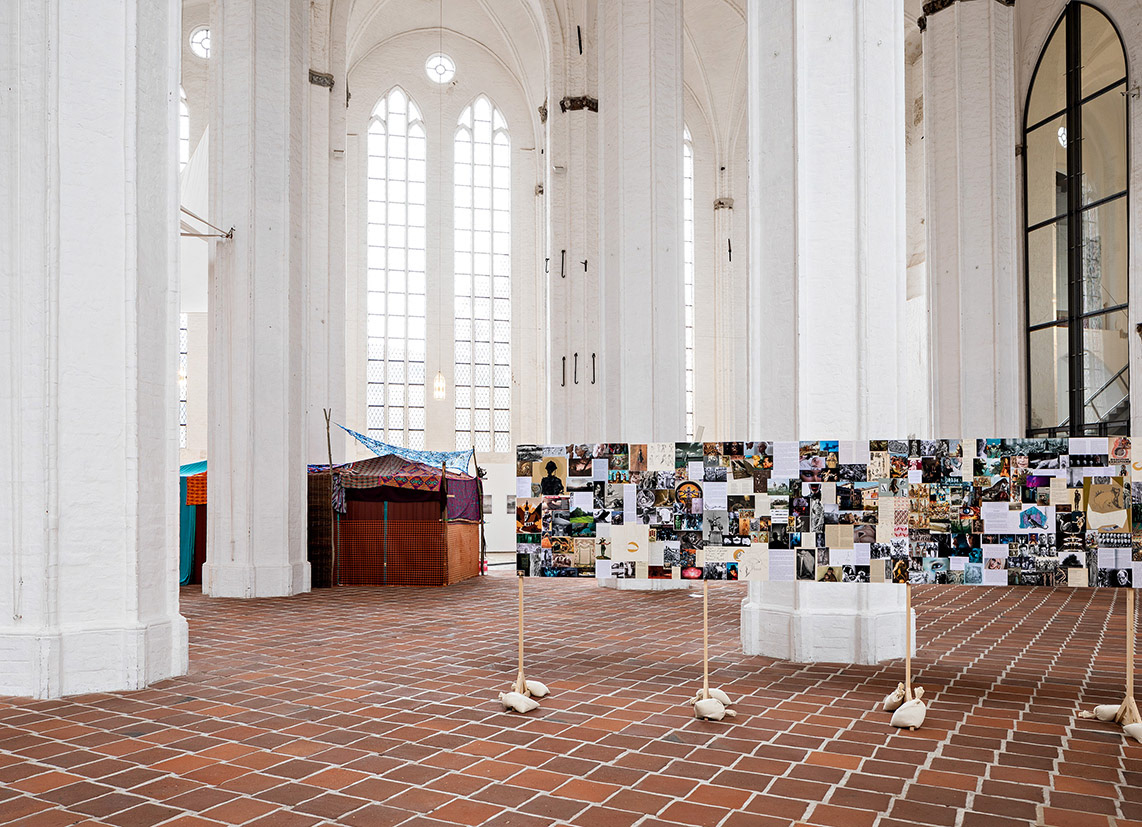
St.Petri Church/Lübeck, 2018 The exhibit ‘Darkstar’ in the St.Petri Church of Lübeck is the finale of a series of exhibitions and performances (see 'Journey into the End of Night'/'Happy Birthday') that evaluates, from an artistic viewpoint, the current consequences of the First World War and the globalizing effect on the occasion of the centenary of its outbreak and further course. Just like the works depicted, the contributions will illustrate aspects of a fundamental shift in the meaning of terms such as nature, material and creation on the basis of zombies and cyborgs – two figures characteristic of World War I and zeroes in on the phenomenon in its actuality in a collage-like manner. However, it will also show how a media or museum presentation or staging of the historical drama clouds the view of the real consequences. Here in 2018 it is possible, on the 100th anniversary of the end of a war, to ask about the meaning of a ceremony with media razzmatazz on the occasion of the anniversary of its start, as was seen in 2014, and at the same time to emphasize the complexity of the societal effects. The deconsecrated church in Lübeck’s city centre will feature an installation based on the enchanted or nightmarish forest (former battlefield's as today's red zones), enabling us to create a thematic bridge between the loss of mysticism, our altered understanding of the concept of nature, and the fairground-esque treatment of World War I in the media and in war tourism. This aspect is confronted by collages of a thematic flood of images, WW1 computer games as well as photographies of historical and actual architecture of political, military and economical power. The central cinema tent shows architectural references to bivouacs in the trenches as well as refugees camps and improvised dwellings in deprived areas worldwide. The use of cloths from India, Afghanistan, North Africa, Turkey and the ‘African’ wax prints from the Netherlands is a distinct allusion to the ongoing influence if colonialism.




